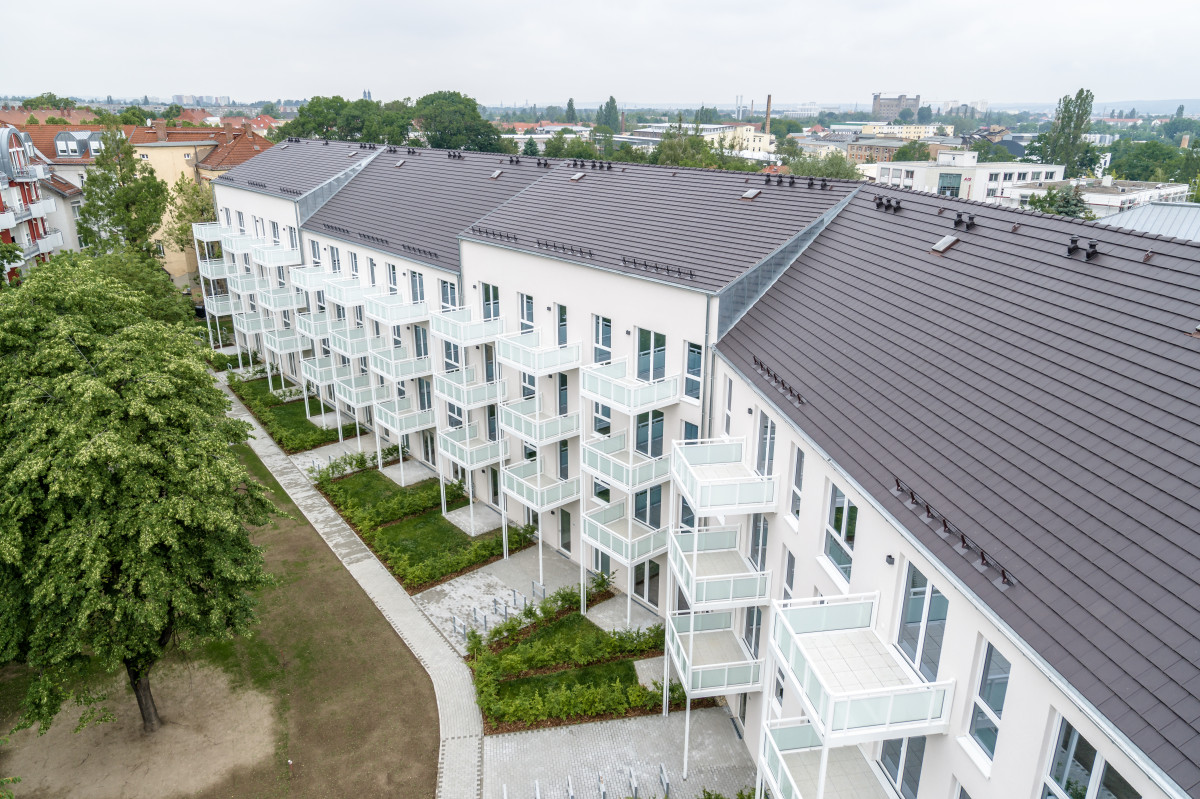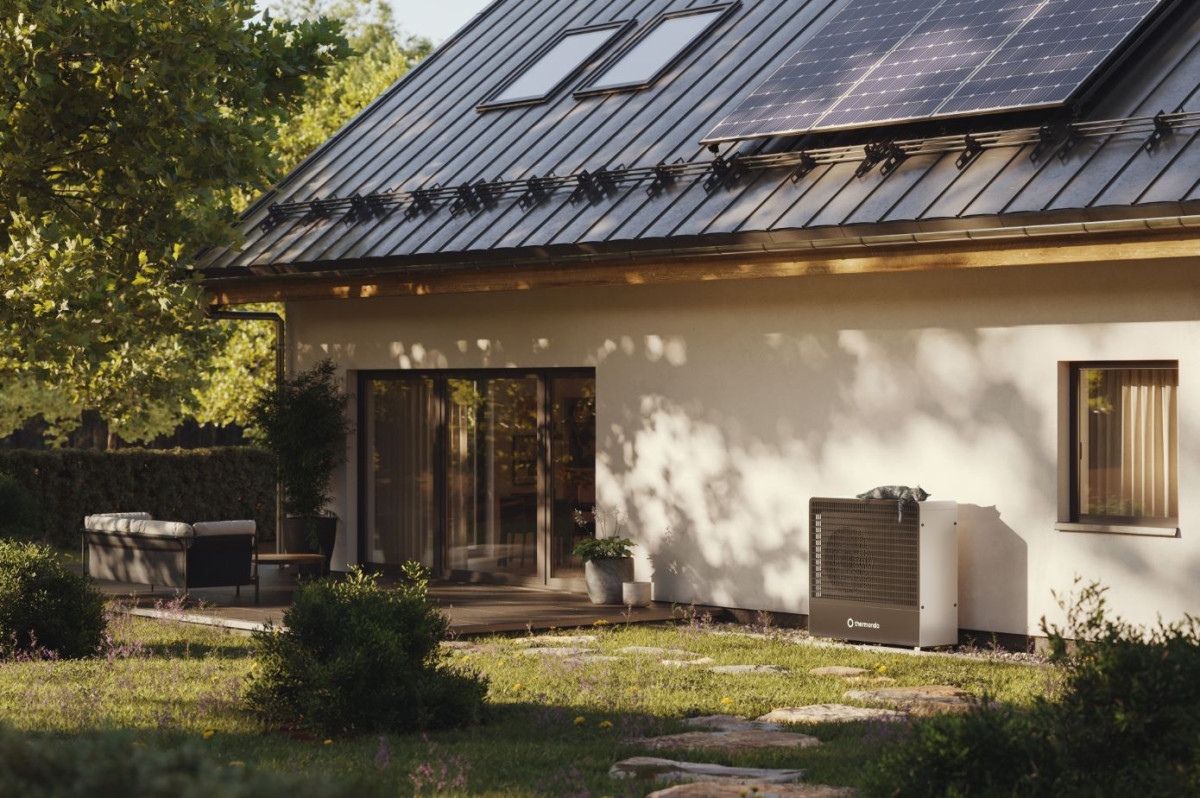Vote25: Keeping homes affordable while making them climate-friendly is next German govt's big challenge
***Please note, this article is part of CLEW's analysis series on the state of play in the green transition across economic sectors. You can find the other articles here.***
The affordability of the energy transition in people's homes is set to take centre stage for the next German government. The country has only just begun to cut the enormous fossil fuel emission from heating houses in earnest, but concerns already abound over whether everyone can afford to implement the necessary measures.
"There continues to be much awareness among the German population about the challenges posed by global warming, but people are no longer as enthused about climate action as they perhaps were a few years ago," Brigitte Knopf, head of the think tank Zukunft KlimaSozial, told Clean Energy Wire. "Affordability is currently the dominant topic – and that’s where policymaking needs to intervene."
As the population heads to the polls on 23 February, heated debates over a controversial law to transition away from climate-damaging heating with oil and gas still linger on voters' minds. Many residents have come face-to-face with what it means to implement targets intended to slash fossil fuel use, and say they are unable to bear the immediate costs of the transition alone – concerns that populist parties have capitalised on.
Energy poverty on the rise
Following Russia's war against Ukraine, energy prices skyrocketed in Germany. During the first winter without Russian gas, there was talk of potential blackouts or energy shortages, which ultimately did not materialise. Heating costs increased by up to 81 percent during the winter of 2022, according to an analysis by non-profit consultancy co2online.
The energy crisis highlighted the high costs of large fossil fuel dependencies for the economy, but also people’s energy bills. Renewable energy expansion went from a solution championed to fight the climate crisis to a means to increase national security and eventually bring energy bills down.
While Germany weathered the height of the crisis without the worst concerns coming true (the government introduced several relief measures, including some to cap energy bills) its consequences still revibrate today.
"Around 3 million households in Germany are vulnerable to rising fossil fuel prices," a recent report by Germany's environment agency (UBA) found. These households, heated with fossil fuels, are unable to adequately warm their homes or are "heavily burdened" by rising energy costs, the authors wrote.
The number of households living in "energy poverty", which is generally understood as them spending more than 10 percent of their income on energy, rose steeply since the onset of the energy crisis, a separate report found.
A fair transition
While the majority of people in Germany are in favour of more climate action, less than 40 percent are in favour of measures such as the CO2 price or a ban on installing new gas or oil boilers, according to a survey by research alliance Ariadne. Support is especially low in the former East German states.
Climate-damaging behaviour will soon be more expensive: from 2027, Germany will switch from its national CO2 price for transport and heating fuels to the EU-wide emissions trading system (ETS II), something the new government will have to legislate.
"The introduction of the ETS II, and dealing with the rising costs for citizens certainly is going to be an important question for the next government," Knopf from think tank Zukunft KlimaSozial said. "Questions like how to scale compensation payments according to social needs should be answered before the summer."
By making the burning of fossil fuels more expensive year on year, the CO2 price is meant to provide an incentive to move towards more climate-friendly ways of heating – such as district heating, geothermal or heat pumps. It is unclear how high the price per tonne of CO2 will be once the European system starts.
Researchers have therefore called on the next government to devise a plan to anticipate these potential jumps in fuel prices and to introduce targeted support measures for low-income households, which might be unable to react sufficiently to the costs increases by investing in energy-efficiency renovations like improved insulation, window replacements or switching heating systems.
Promises to return some of the CO2 price revenue to citizens as compensation through a so-called climate bonus (Klimageld in German) remained unfulfilled. The issue has made it into election campaigns, with the conservative CDU/CSU alliance, the Green party, the Social Democrats (SPD) and the Left party all including the introduction of such a social compensation mechanism in their party programmes.
At the EU level, a Social Climate Fund will be introduced so that member states have funds to help vulnerable groups. Critics have said the fund is not sufficient to achieve this goal. European Member States, including Poland and Czechia, have already called for the start of the ETS II to be delayed to 2028, a possibility which was negotiated into the legislation in case of exceptionally high gas or oil prices.
Heated debates
Heat pumps, a technology few in Germany had strong feelings about before early 2023, became the centre of "one of the greatest political dramas in recent German history", as newspaper Frankfurter Allgemeine Zeitung wrote. No single law has stirred emotions as much as the new rules for transitioning away from climate-damaging heating with oil and gas.
The move to phase out fossil-powered boilers was long overdue: over 70 percent of Germany’s heating demand is still supplied by gas or heating oil and the buildings sector is responsible for around 15 percent of Germany's entire CO2 output.
However, Germany's outgoing government failed to communicate in time how it would support the switch to cleaner but more expensive heating systems. An initial draft of the law – leaked to the press before it was finished – was widely criticised for imposing strict targets and unrealistic deadlines.
Coupled with disinformation campaigns – which included cartoons of economy minister Robert Habeck personally ripping off boilers from individuals' basements – and controversies within the coalition, homeowners remained uncertain about possibilities available to them and were generally concerned about the topic of changing heating systems.
While heat pump sales soared during the energy crisis, uncertainty surrounding government support for their purchase meant sales dropped significantly in 2024 for the first time since 2017.
"Climate protection in the boiler room is proving to be so politically difficult that compensation for cases of hardship should be the starting point," said Matthias Kalkuhl, lead author of a Mercator Research Institute on Global Commons and Climate Change (MCC) report on a heating transition without impositions.
CLEW Masterclass: What is at stake in energy and climate in Germany's election
Stepping out of the fossil heating age
In their election campaign, the conservative alliance of CDU/CSU which leads the polls has pledged to abolish this law. The move was heavily criticised by the heating industry, which by now has made significant investments to train up personnel and switch to climate-friendly business models.
“The debate surrounding the heating law has led to uncertainty among citizens. The fact that consideration is now being given to cancelling the reform is counterproductive and will hold back investments in modern climate protection technologies,” the Central Association of German Electrical and Information Technology Trades (ZVEH) said in a position paper.
Researcher Knopf said that a new government is unlikely to entirely abolish the law, instead opting to reform key provisions. European rules such as climate targets in the sector, as well as the updated Energy Performance of Buildings Directive (EPBD) set certain boundaries, she added.
Germany's national climate neutrality target for 2045 requires the vast majority of its 40 million buildings to switch to green heating within 20 years. Given that boilers generally have a lifetime of over two decades, systems installed today need to be ready for a climate-neutral future.
Some German cities are taking decisive steps towards making their heating supply climate friendly. For example, the southern city of Augsburg has announced plans for ending the use of gas in its heating systems.
The city of Mannheim has gone further, announcing it would phase out its gas grid in 2035. Some welcomed the move, saying it brought much-needed clarity and planning security early on, but others – especially households that had recently installed gas boilers – said they felt betrayed.
Using gas for heating is likely to become increasingly expensive in the coming years, both due to higher costs falling on a dwindling user base and rising CO2 prices. At the same time, oil and gas boilers, as well as poor insulation, are eating into the market value of residential property in Germany, according to a report by news agency dpa.
Taking stock: What did Scholz's coalition government achieve on the path towards decarbonising Germany's buildings?
- Climate-friendly heating: After years of neglect, Scholz's coalition government finally took decisive steps to reduce emissions from Germany's building sector – but not without losing significant public trust in the process. After topping up subsidies and effectively postponing a broad ban on new fossil fuel heating systems, parliament finally passed the watered-down law in September 2023, which requires heating systems in new buildings to be climate friendly and for municipalities to draw up heating plans by 2028.
- Heat pump installations: The government fell well short of its target of installing 500,000 new heat pumps per year from 2024. While sales boomed in the middle of the energy crisis, reaching record levels, the controversial heating law led to a drastic drop.
- Geothermal renaissance: Geothermal energy received renewed attention as a climate-friendly heating source, with outgoing chancellor Olaf Scholz pledging its tenfold increase in heating networks by 2030 compared to 2023. The government agreed on easier approval procedures for geothermal projects.
- Sharing the cost of carbon emission: To support tenants living in poorly-insulated homes, the coalition agreed on a tiered CO2 cost-sharing system between landlords and tenants, with landlords of buildings with particularly high emissions paying up to 95 percent of the carbon price.
- Balcony power plants boom: So-called balcony power plants are thriving in Germany. Hundreds of thousands of people have plugged the photovoltaic units into their balconies, and the country made headlines internationally for their surprising rollout.
- Stagnant smart meter rollout: The coalition government also looked to relaunch the sluggish smart meter roll-out with the aim of making the devices “largely standard” in Germany’s homes by 2032. Smart meters enable households to actively take part in the energy transition, yet less than one percent is equipped with one – one of the lowest rates in the European Union.
- Dynamic electricity tariffs: Smart meters are a requirement for dynamic electricity tariffs which, since the start of 2025, all utilities have to have on offer. These give households – particularly those with an electric vehicle, a heat pump and their own solar panels – the opportunity to consume electricity when it is plentiful and prices therefore lower. However, more than half of German households have not heard of dynamic electricity pricing, with 81 percent of them feeling poorly informed on the topic, according to a survey by consumer group vzbv.
- Sustainable and future-proof buildings: The government did address the need to make buildings and construction more sustainable with a number of strategies, including the
- circular economy strategy to ensure construction materials retain their value for longer;
- timber construction initiative to drive the uptake of sustainable building materials, as well as modular and serial construction;
- lightweight construction strategy to reduce material consumption;
- urban heat strategy to protect people and infrastructure in cities and towns from sweltering heat.
Renovation rate remains below required level
A good 30 percent of Germany's buildings are in the energy efficiency classes G and H – the worst ratings. Energy efficiency renovations of these leaky homes picked up in the past couple of years, but the government clearly missed its target to refurbish two percent of the building stock annually.
"From the outset, the energy-efficient renovation of existing buildings was a gigantic task," said Martin Gornig from the German Institute for Economic Research (DIW). "We have a huge volume ahead of us and only a small percentage of new builds are actually climate-neutral. So, in fact, the entire building stock needs to be modernised – and it was clear from the outset that this would take more than a decade."
The next government will have to implement the EU's Energy Performance of Buildings Directive (EPBD) into German law, which stipulates that the building sector must reduce its energy consumption by at least 16 percent by 2030, compared to 2020 – with renovations starting in the worst-performing buildings.
"To make buildings climate-resilient and to increase their value and useful life, it is not enough just to change the type of heating supply," said Marita Klempnow, head of the German Energy Consultant Network (DEN). "The energy demand is largely determined by the building envelope."
More and better homes needed
Germany is also facing a housing shortage, with the outgoing government's promise to build 400,000 new homes per year – 100,000 of which should be social housing – remaining unfulfilled.
The pressure to build affordable housing and to create more homes led the buildings ministry (BMWSB) to suspend the introduction of tighter energy efficiency rules for new buildings which were set to come into force in 2025. Developers had complained that stricter rules led to higher prices, and thus less construction.
Still, environmental associations and researchers have said there is enormous potential in transforming and using existing buildings for housing.
"There is sufficient expertise, a wide range of materials and the necessary technologies in the construction industry to significantly improve Germany's building stock," said Jan Peter Hinrichs, head of the energy efficiency association BuVEG. "What is missing is a reliable political framework and, in particular, planning security."
Germany's building sector is likely to fall short of its climate targets all the way through to 2030. Public discontent with the government risks slowing down further climate efforts.
Researchers agree that tackling Germany's climate situation requires an emphasis on the social impacts of decarbonisation. "[Policymaking] needs better communication to make people aware of what they stand to gain from the transformation, for example by having better air quality in inner cities," researcher Knopf said.




